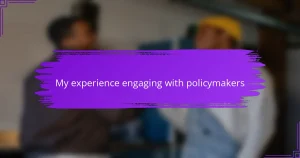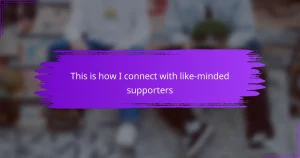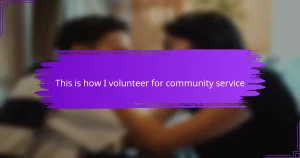Key takeaways
- The Obama supporter community emphasizes unity, resilience, and inclusivity, fostering genuine connections among members.
- The Biden-Harris team reflects diversity and a commitment to ongoing movements for justice, maintaining continuity from the Obama administration.
- Engagement through volunteering, community forums, and social media strengthens political involvement and fosters meaningful conversations.
- Personal outreach, characterized by thoughtful communication and shared stories, enhances connections with political leaders and promotes collaboration.
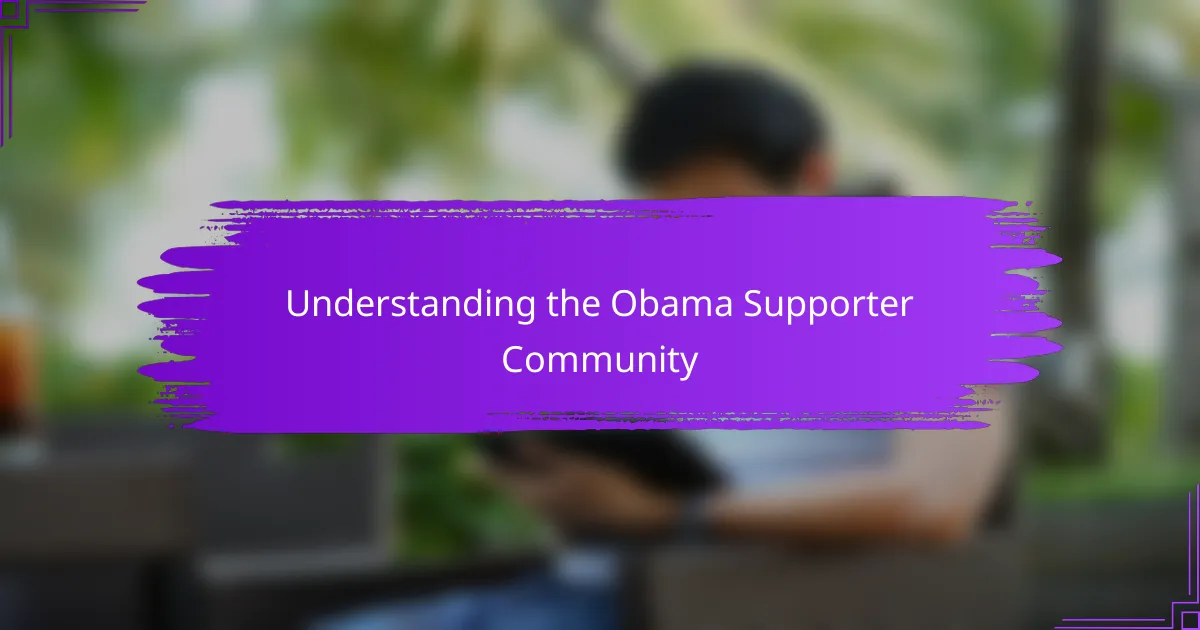
Understanding the Obama Supporter Community
The Obama supporter community is more than just a group of voters; it feels like a tight-knit family united by shared values of hope and change. I remember feeling this connection deeply during the 2008 campaign, when strangers would exchange encouraging words as if we were all part of something bigger. Have you ever experienced that kind of collective energy driving a movement forward?
What stands out to me about this community is the genuine passion for progressive ideals mixed with a welcoming spirit. It’s a place where spirited debates happen, but respect and empathy always guide the conversations. This balance made me feel heard and motivated to stay engaged even after the campaigns ended.
Understanding this community means recognizing its resilience through challenges and its unwavering belief in inclusive leadership. I often reflect on the countless grassroots efforts I witnessed—people organizing locally, lifting each other up, and refusing to let setbacks dampen their spirit. Isn’t that the true power of a supportive network?
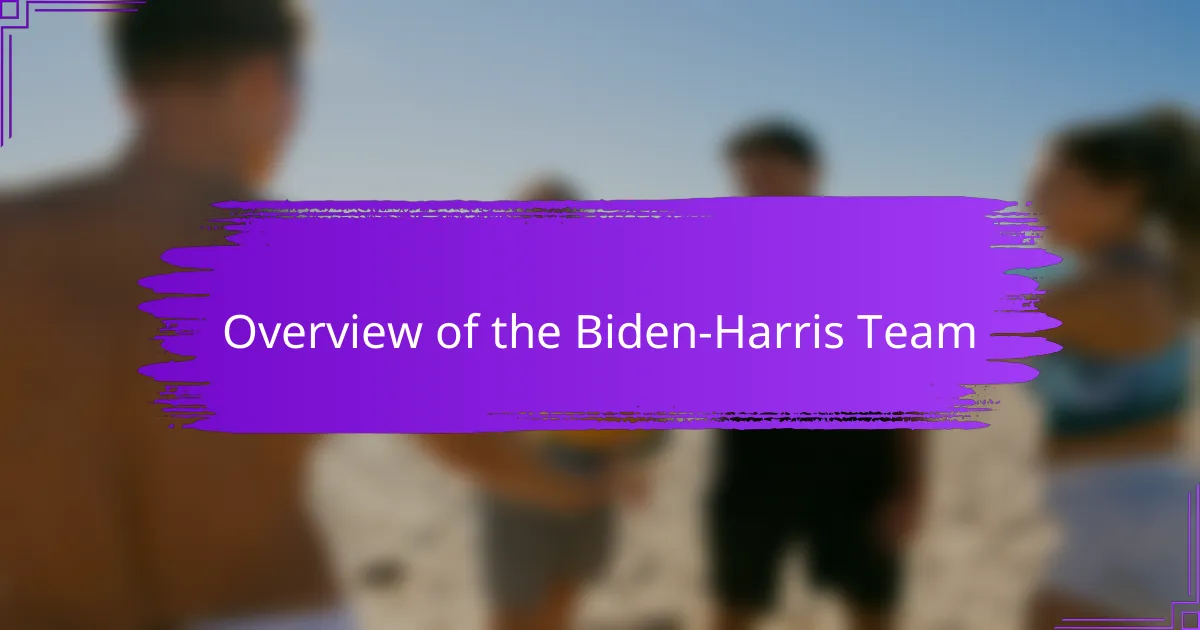
Overview of the Biden-Harris Team
The Biden-Harris team brought together a blend of experience and fresh energy that felt reassuring, especially for those of us who had witnessed the paths paved by the Obama administration. I remember watching debates where their commitment to unity and progress was clear, sparking hope that echoed familiar themes from past campaigns. Have you ever noticed how some political partnerships just click, creating a sense of shared purpose?
What struck me most about their team was the intentional inclusivity reflected in their diverse backgrounds and expertise. It felt like a deliberate effort to represent all corners of America, something that resonated deeply with the ideals I had admired in Obama’s leadership. This diversity wasn’t just for show—it embodied a genuine commitment to listening and learning across differences.
Engaging with the Biden-Harris team also meant recognizing how their approach connected to ongoing movements for justice and equity. Watching their policy priorities unfold, I felt a sense of continuity and renewed energy that reminded me why staying involved matters. Isn’t it encouraging when leadership mirrors the values we hold dear, making us feel both seen and inspired to act?

Common Goals Between Both Teams
One thing I noticed right away was how both the Obama and Biden-Harris teams prioritized building bridges rather than walls. Their shared commitment to unity felt like more than just a campaign strategy—it was a genuine effort to bring people together, even when disagreements arose. Have you ever felt that rare moment when politics actually seems to listen and respond to the hopes of everyday people?
Another common goal that stands out is the focus on expanding opportunity and fairness. From tackling economic inequality to advancing healthcare access, both teams showed a deep belief in lifting everyone up, not just a select few. I recall conversations with fellow supporters who found hope in seeing policies aimed at creating a more level playing field—it’s motivating to witness progress rooted in empathy and justice.
Lastly, there’s the enduring commitment to inclusivity and representation. I’ve seen how these values create a sense of belonging that fuels real change. When leadership reflects the diversity of the community it serves, it sends a powerful message: everyone’s voice matters and contributes to shaping the future. Don’t you find that this approach sparks a more personal investment in the political process?
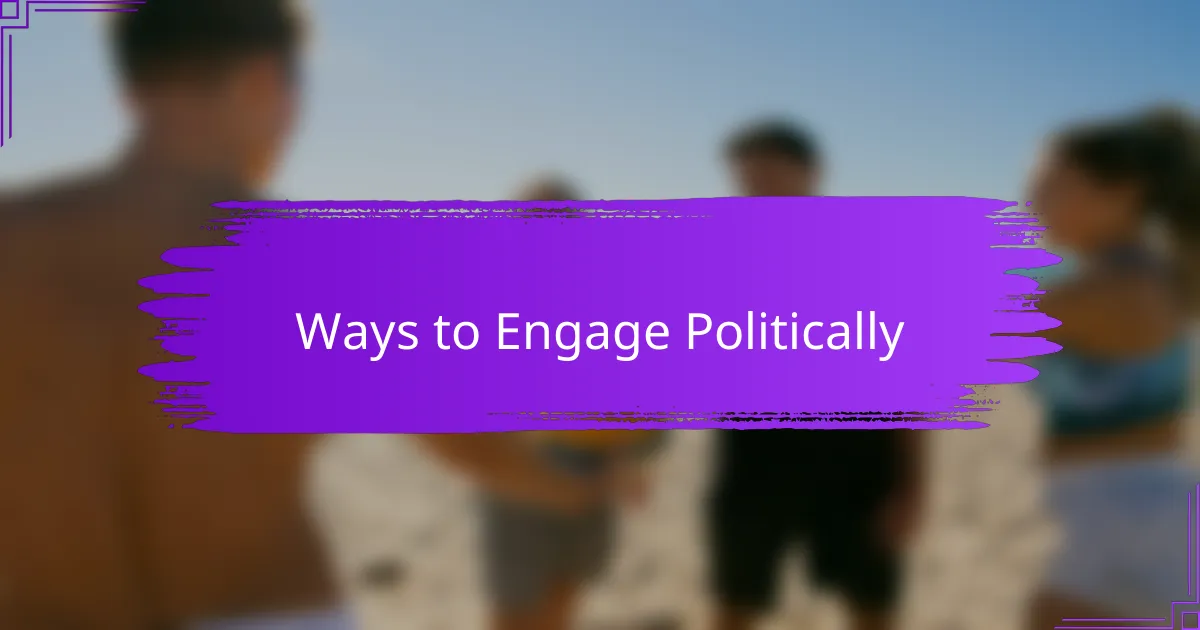
Ways to Engage Politically
Engaging politically can take many forms, and I found that volunteering for local campaigns made the experience feel immediate and impactful. Knocking on doors or making phone calls isn’t just about numbers—it’s about connecting with neighbors and sharing stories, which reminded me why these movements matter so much. Have you ever felt that surge of hope after a meaningful conversation with someone new?
Another way I’ve stayed involved is by participating in community forums and town halls, which offer a chance to voice concerns directly and hear from leaders up close. These events felt like a continuation of the spirited discussions I loved in the Obama supporter groups—energizing, respectful, and full of potential. It’s incredible how engaging in dialogue can transform frustration into action.
And then there’s the power of communication through social media and writing. I remember drafting posts reflecting on policies and personal experiences, hoping to spark conversations among friends and followers. It taught me that even small contributions to the narrative can amplify our collective voice, creating ripples far beyond what I initially imagined. Have you tried sharing your political perspective online and noticed how it opens new doors for connection?
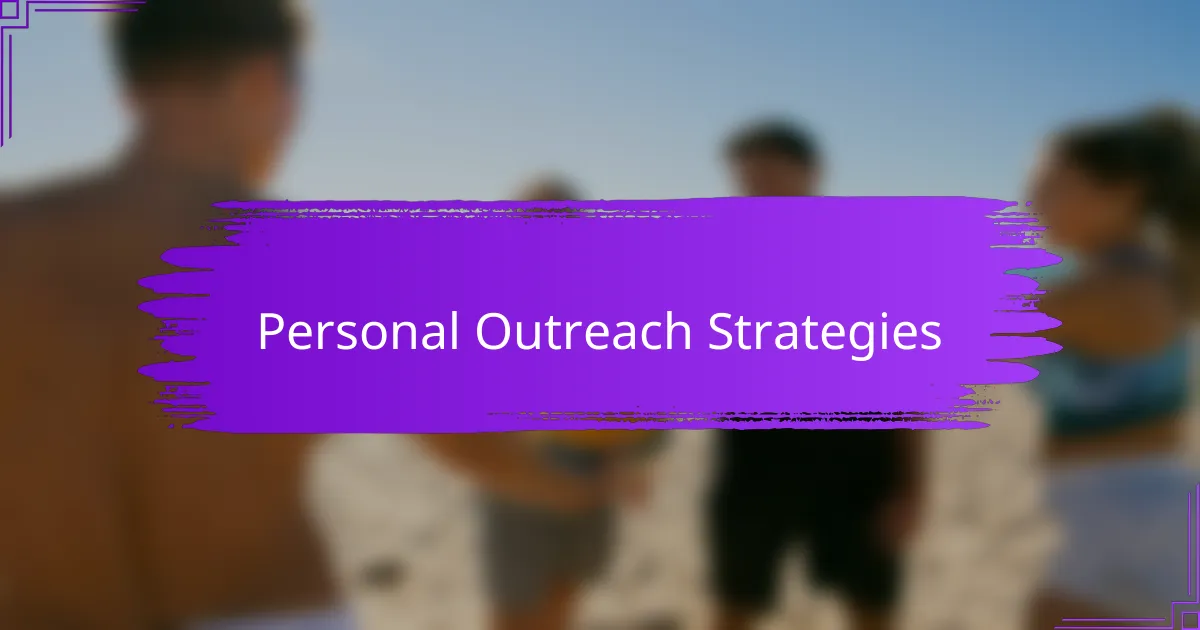
Personal Outreach Strategies
When I first decided to reach out personally to members of the Biden-Harris team, I found that crafting thoughtful, concise messages made all the difference. Instead of sending generic emails, I shared why their work resonated with me and how it connected to the values I embraced during the Obama years. Have you ever noticed how a personal touch in communication can open doors that formal letters often leave closed?
I also learned that timing mattered a lot—reaching out after major events or policy announcements felt like joining a meaningful conversation rather than interrupting. I remember sending a message right after a key speech, expressing my support and asking a specific question. The response I got reminded me that even busy teams appreciate genuine engagement. Doesn’t it feel encouraging when your voice is acknowledged, no matter how small the interaction?
Sometimes, I combined my outreach with sharing community stories, whether through brief notes or social media mentions. Highlighting shared experiences created a bridge that made my messages feel less like petitions and more like conversations among allies. From my experience, personal outreach isn’t just about being heard—it’s about building relationships one honest connection at a time. Have you tried reaching out this way and felt the impact of that human connection?
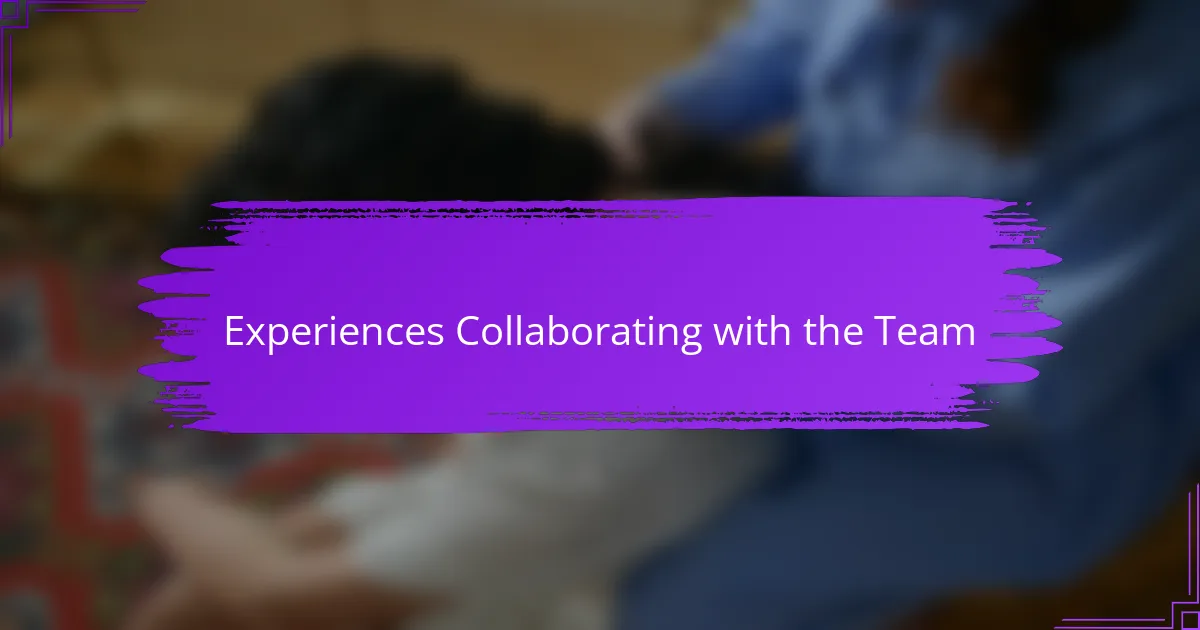
Experiences Collaborating with the Team
Collaborating with the Biden-Harris team felt like stepping into a space where experience met genuine openness. I recall a moment during a virtual roundtable when a team member took extra time to listen to a grassroots concern, making me feel that our voices truly mattered. Doesn’t it make all the difference when those leading the charge show they’re not just hearing us, but really listening?
The team’s responsiveness was striking, especially when navigating complex issues. I found that their willingness to engage in honest dialogue, even when viewpoints differed, created an environment where progress wasn’t just a slogan but a shared mission. Have you ever been part of a conversation that challenged you, yet left you empowered because everyone was committed to finding common ground?
Beyond the formal meetings, what really stood out was the warmth and respect that permeated interactions. It wasn’t just about policy—it was about people connecting over shared values and hopes for the future. For me, that human element transformed collaboration from a task into a meaningful partnership. Isn’t that the kind of teamwork that reinvigorates our faith in leadership?
